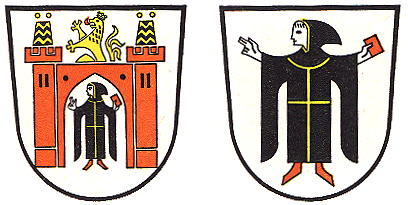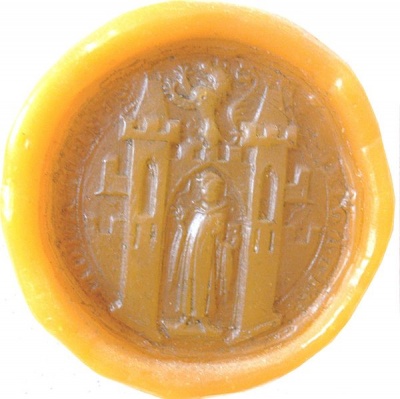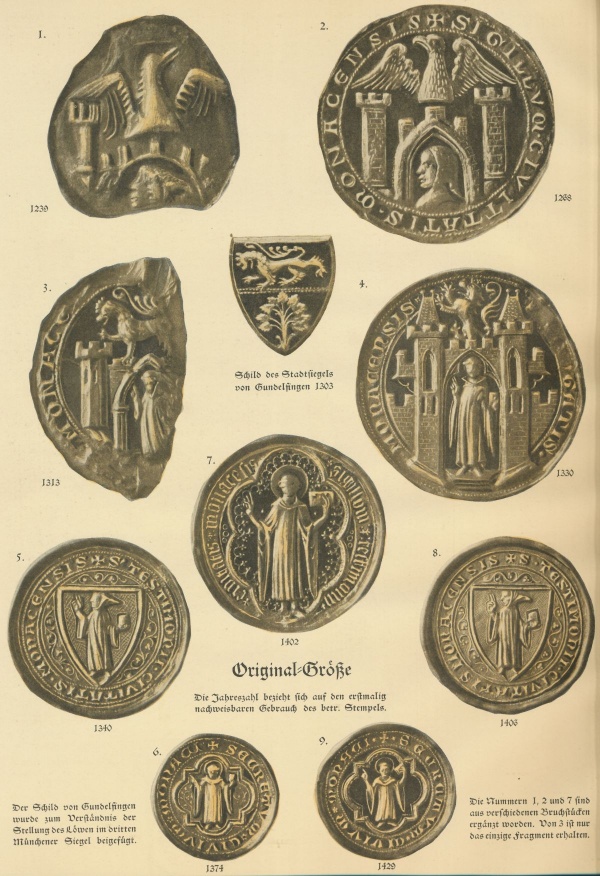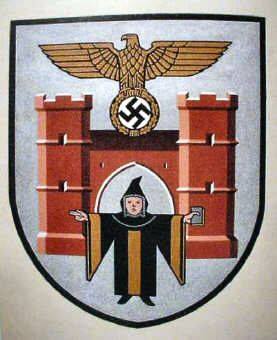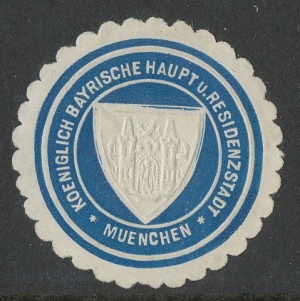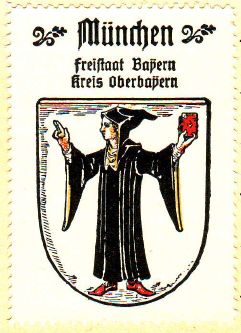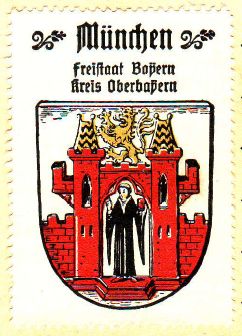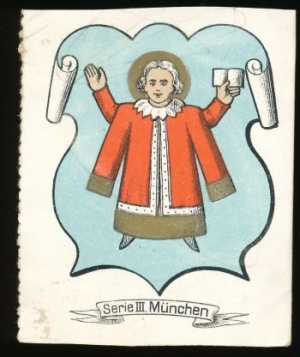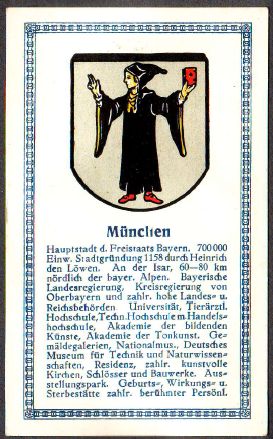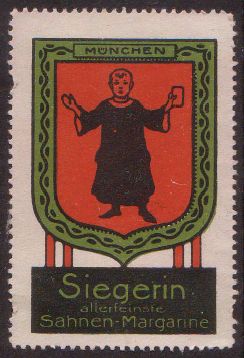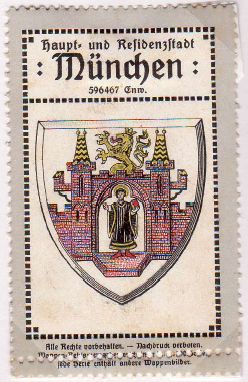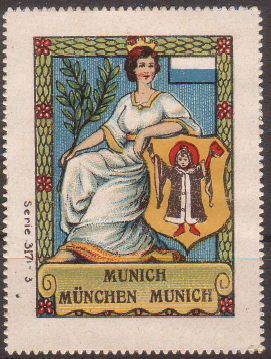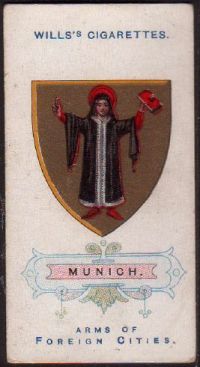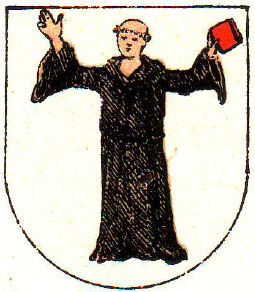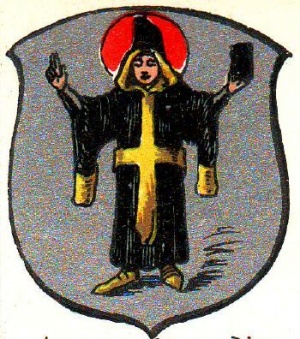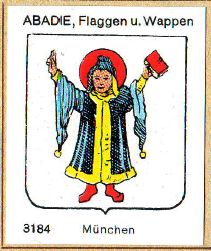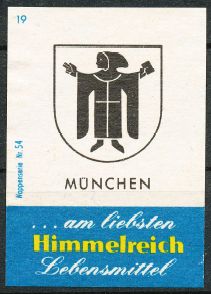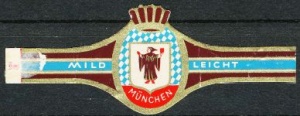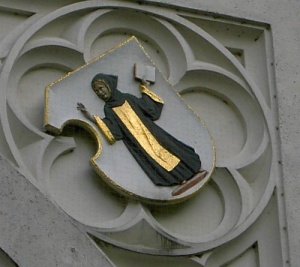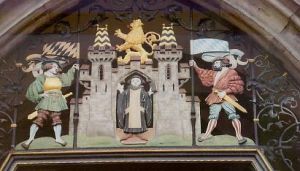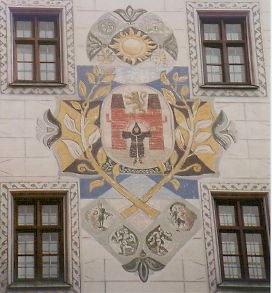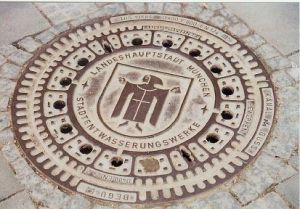München
This page is part of the German heraldry portal Deutsche Wappensammlung |
Heraldry of the World |
|
German heraldry:
|
Selected collector's items from Germany:
|
MÜNCHEN
State : Bayern
Urban district (Stadtkreis) : München
Additions : 1854 Au, Giesing, Haidhause; 1864 Ramersdorf; 1877 Sendling; 1890 Neuhausen, Schwabing; 1892 Bogenhausen; 1899 Nymphenburg; 1900 Laim, Thalkirchen; 1912 Forstenried; 1913 Berg am Laim, Milbertshofen, Moosach, Oberföhring; 1930 Daglfing, Perlach; 1931 Freimann; 1932 Trudering; 1938 Allach, Feldmoching, Großhadern, Ludwigsfeld, Obermenzing, Pasing, Solln, Untermenzing; 1942 Aubing, Lochhausen
Official blazon
- (small arms) In Silber ein stehender Mönch mit golden bordierter schwarzer Kutte und Kapuze und roten Schuhen, der ein rotes Buch in der Linken hält; die Rechte segnend erhoben.
- (large arms) In Silber ein offenes rotes Stadttor zwischen zwei roten Zinnentürmen mit von Schwarz und Gold mehrfach zickzackartig gebänderten Dächern; oben ein wachsender, golden gekrönter und bewehrter goldener Löwe; im Tor der Mönch des kleinen Wappens.
Origin/meaning
The arms were officially granted on June 11, 1865, December 24 1936 and again on December 17, 1957.
The city of München presently only uses the right arms as the official arms. Until 1957 the left arms were the official great arms, the right arms the arms for daily use.
The monk (Mönch) is a canting symbol. The monk already appears as a canting symbol on the first seals of the city, which date from 1239 and 1268. The seals show a gate with the mink and above the gate an eagle, probably derived from the arms of the Bishops of Freising, to which the city belonged. Since 1313 the lion replaced the eagle, as the city now was a possession of the Wittelsbach family, Dukes of Bayern. The lion is the oldest symbol for the Wittelsbach family, which commonly used a blue shield with silver diamonds (see the arms of Bayern).
| The seal of München from 1330 (source) |
The seals of München by Hupp, 1912 |
The arms with the gate have not changed since and were officially granted as city arms in 1834 by King Ludwig of Bayern. Form 1936-1945 the lion was replaced by the eagle used by the Third Reich.
| The arms from 1936-45 |
The use of the great arms was abolished by law from December 17, 1957 and only the small arms have been used since.
The monk as a single figure has been used on a small seal dating from 1304, and on the banners of the city since the mid 14th century. The shape of the monk has changed considerably during the centuries.
The arms on collector's items and books:
| Seal from around 1900 |
The small arms in the Kaffee Hag albums +/- 1925 |
The large arms in the Kaffee Hag albums +/- 1925 |
| The arms in the Continentale Verlags-Anstalt album, +/- 1910 |
The arms in the Abdulla album, 1928 |
The arms on a trade stamp from Siegerin (1920s) |
| The arms a trade stamp, +/- 1910 |
The arms a trade stamp, 1920s (?) |
The arms on a british cigarette card, 1910s |
| The arms from around 1900 |
The arms from around 1900 |
The arms in the Abadie albums |
| The arms on a 1960s matchox label |
The arms on a 1970s cigar bond |
The arms are also seen on all covers of the Münchener Kalenders :
Some examples:
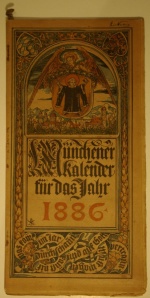 1886 |
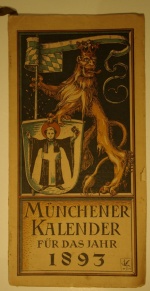 1893 |
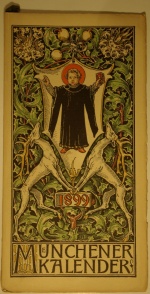 1899 |
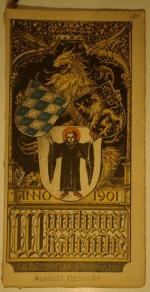 1901 |
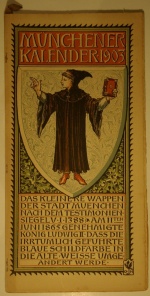 1903 |
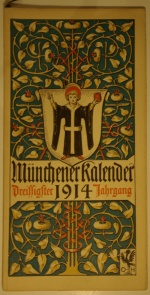 1914 |
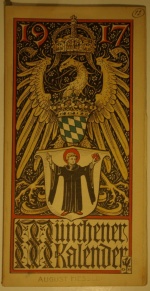 1917 |
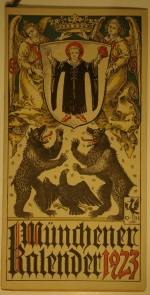 1923 |
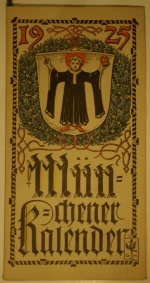 1925 |
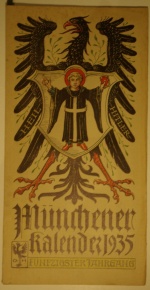 1935 |
The arms as seen in the city
| The arms on the Karlstor Gate (source) |
The arms on the city hall |
The arms on the city hall |
| The arms on a manhole cover |
Contact and Support
Partners:
Your logo here ?
Contact us
© since 1995, Heraldry of the World, Ralf Hartemink 
Index of the site
Literature : Stadler, K. : Deutsche Wappen - Bundesrepublik Deutschland. Angelsachsen Verlag, 1964-1971, 8 volumes.


